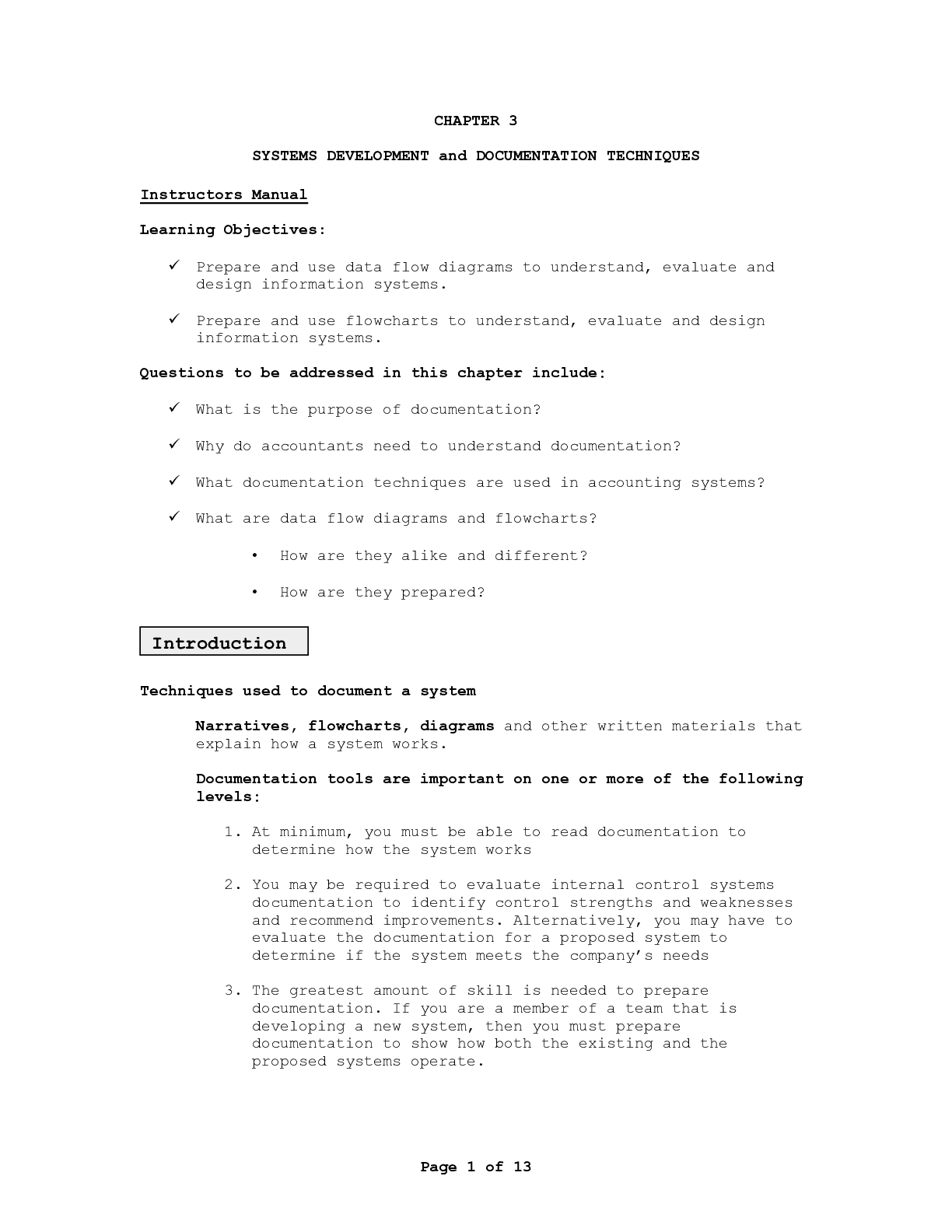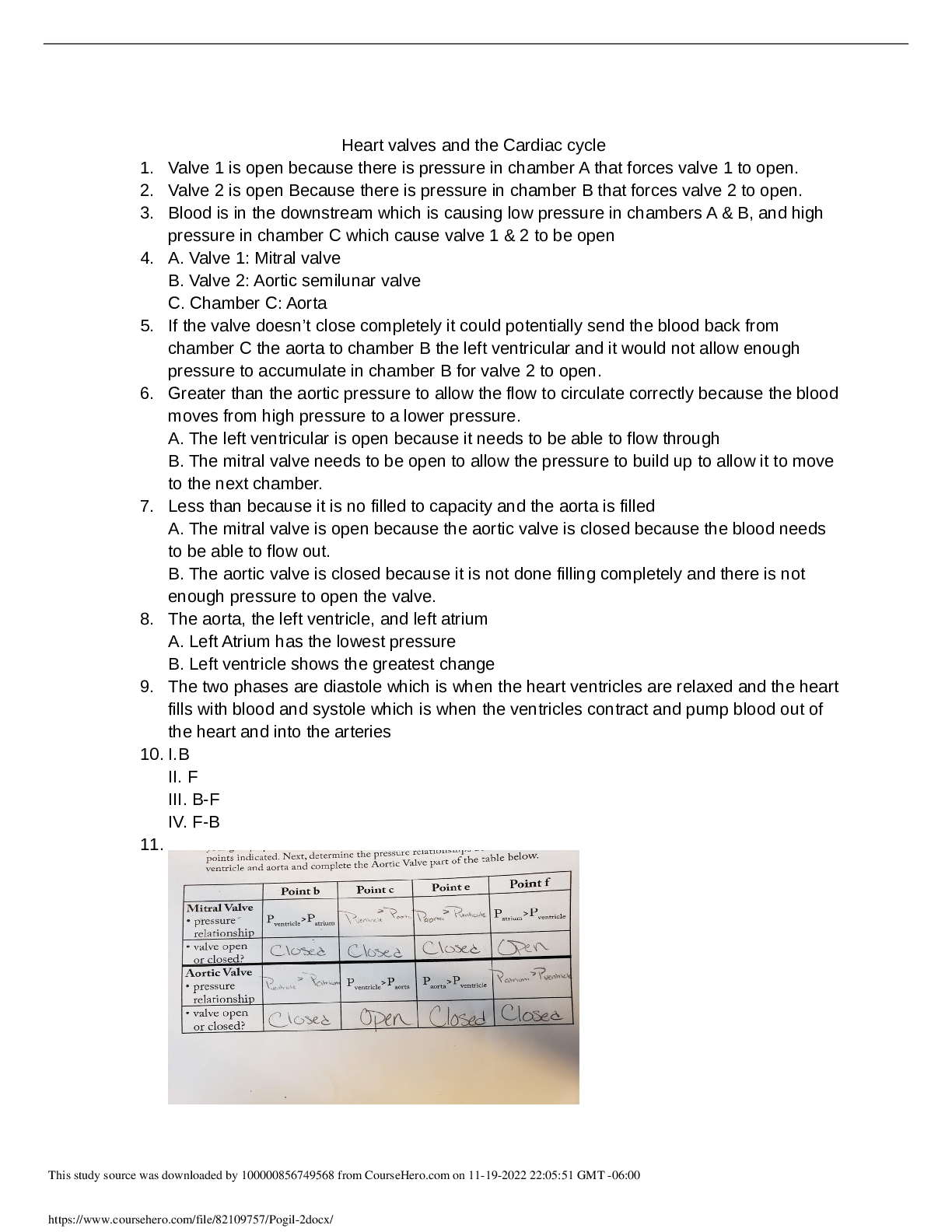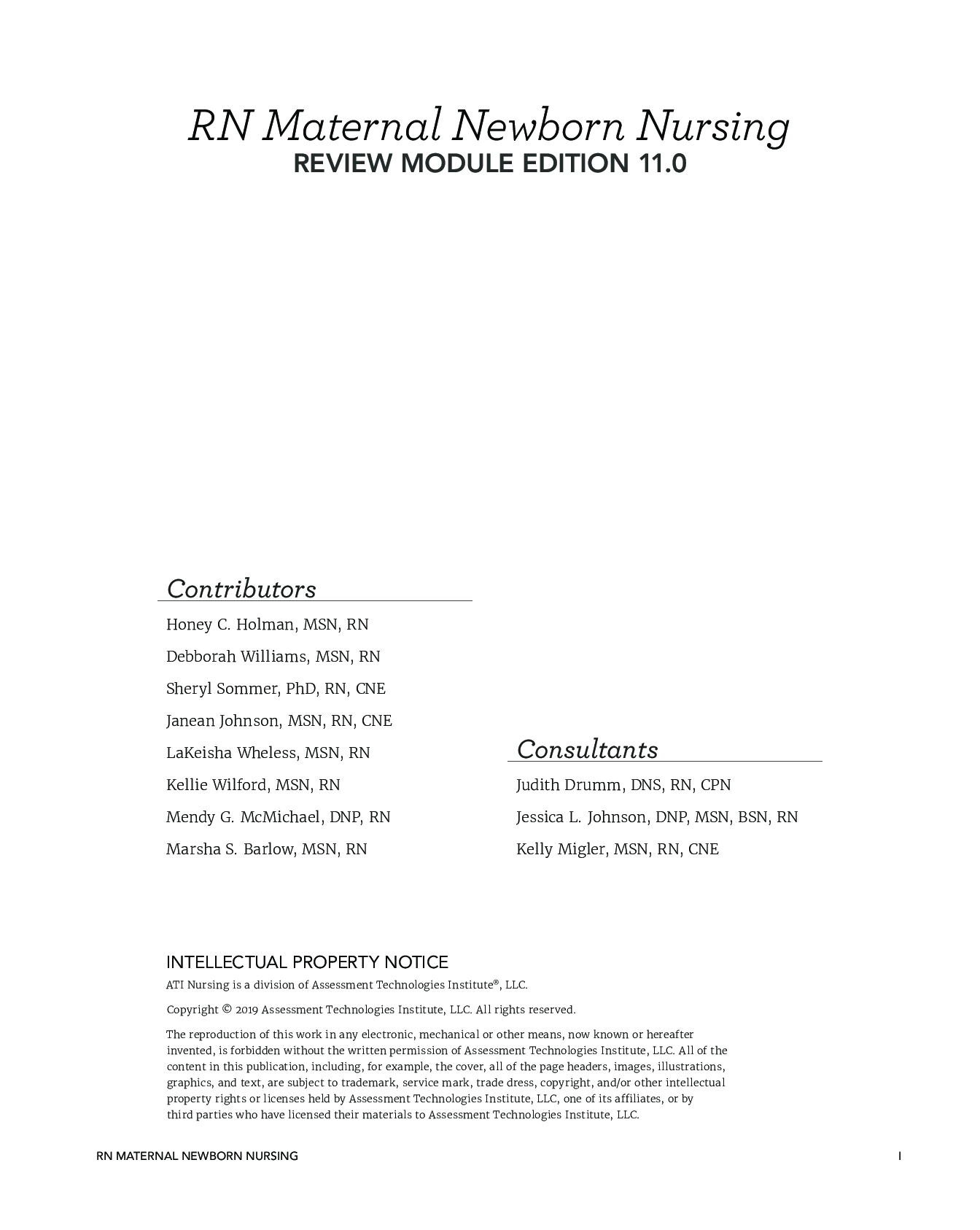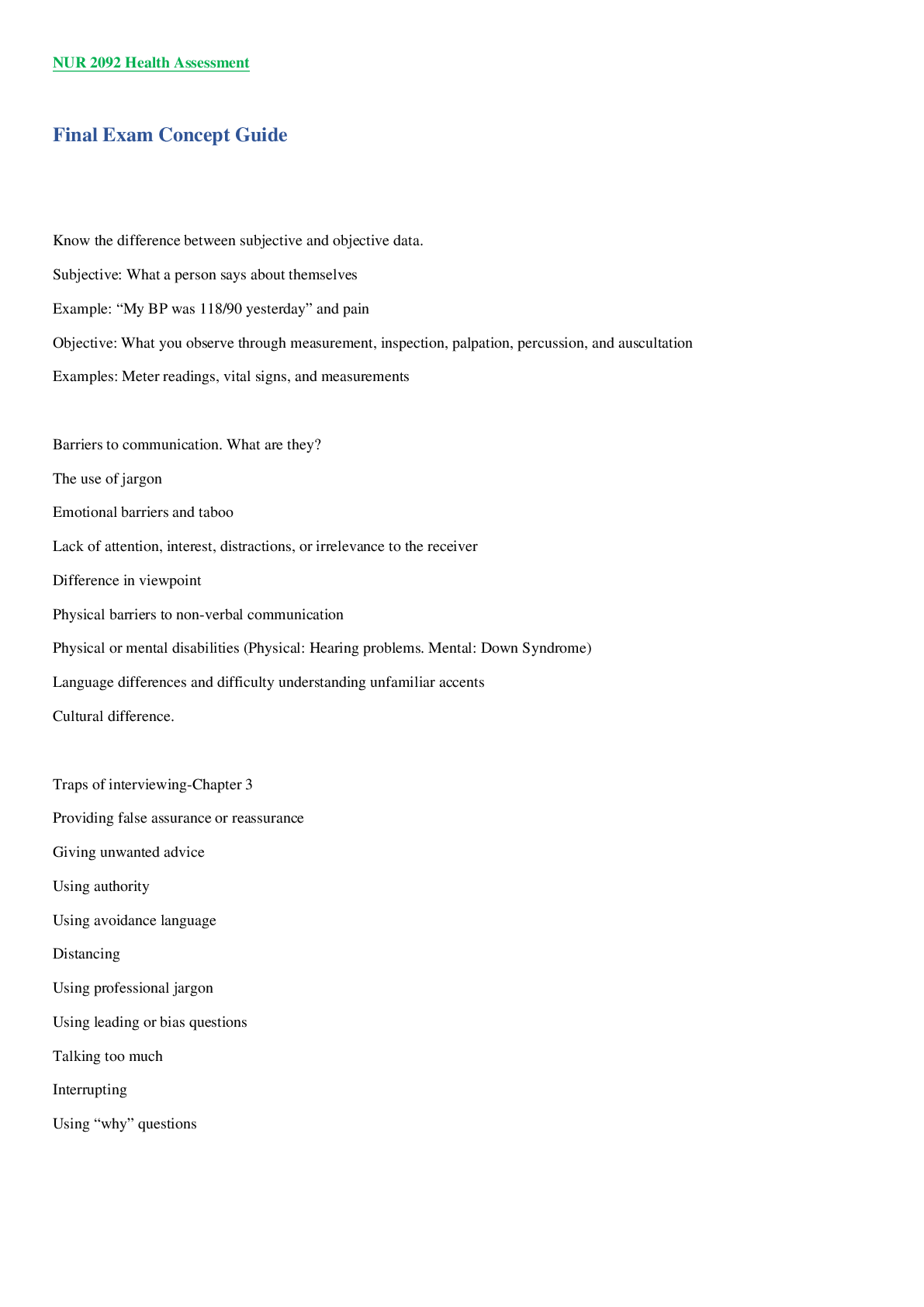Information Technology > STUDY GUIDE > 3 SYSTEMS DEVELOPMENT and DOCUMENTATION TECHNIQUES - Boston University Academy ACCT 706 (All)
3 SYSTEMS DEVELOPMENT and DOCUMENTATION TECHNIQUES - Boston University Academy ACCT 706
Document Content and Description Below
CHAPTER 3 SYSTEMS DEVELOPMENT and DOCUMENTATION TECHNIQUES Instructors Manual Learning Objectives: Prepare and use data flow diagrams to understand, evaluate and design information systems. ... Prepare and use flowcharts to understand, evaluate and design information systems. Questions to be addressed in this chapter include: What is the purpose of documentation? Why do accountants need to understand documentation? What documentation techniques are used in accounting systems? What are data flow diagrams and flowcharts? • How are they alike and different? • How are they prepared? Techniques used to document a system Narratives, flowcharts, diagrams and other written materials that explain how a system works. Documentation tools are important on one or more of the following levels: 1. At minimum, you must be able to read documentation to determine how the system works 2. You may be required to evaluate internal control systems documentation to identify control strengths and weaknesses and recommend improvements. Alternatively, you may have to evaluate the documentation for a proposed system to determine if the system meets the company’s needs 3. The greatest amount of skill is needed to prepare documentation. If you are a member of a team that is developing a new system, then you must prepare documentation to show how both the existing and the proposed systems operate. Introduction Page 2 of 13 This chapter discusses the following documentation tools: 1. Data flow diagram, a graphical description of the source and destination of data that shows data flow within an organization, the processes performed on the data, and how data are stored 2. Document flowchart, a graphical description of the flow of documents and information between departments or areas of responsibility within an organization 3. System flowchart, a graphical description of the relationship among the input, processing and output in an information system. 4. Program flowchart, a graphical description of the sequence of logical operations that a computer performs as it executes a program Data Flow Diagrams A data flow diagram (DFD) graphically describes the flow of data within an organization. Elements in a Data Flow Diagram Four Basic Elements: (1) Data sources and destinations (2) Data flows (3) Transformation processes (4) Data stores Data flow diagram symbols shown in Figure 3-1 on Page 64: Data sources and destinations Data flows Transformation processes Data stores Figure 3-2 on Page 64 shows the basic data flow diagram elements. Learning Objective One Prepare and use data flow diagrams to understand, evaluate and design information systems. Page 3 of 13 Data Sources and Destinations Data sources and data destinations are represented by squares, as illustrated by items A (customer), J (bank) and K (credit manager) in Figure 3-3 on Page 65. A data flow represents the flow of data between processes, data stores and data sources and destinations. Processes represent the transformation of data. Figure 3-3 shows that process payment (c) takes the customer payment and splits it in to the remittance data and the deposit (which includes the checks and deposit sli [Show More]
Last updated: 3 years ago
Preview 1 out of 13 pages

Buy this document to get the full access instantly
Instant Download Access after purchase
Buy NowInstant download
We Accept:

Reviews( 0 )
$7.00
Can't find what you want? Try our AI powered Search
Document information
Connected school, study & course
About the document
Uploaded On
Nov 15, 2022
Number of pages
13
Written in
All
Additional information
This document has been written for:
Uploaded
Nov 15, 2022
Downloads
0
Views
86

.png)



.png)

.png)


















